It’s a tricky time to be a food marketer — navigating the Wild West of consumer expectations and unregulated food claims like “natural.”
According to the most recent Consumer Reports Survey, 73 percent of consumers seek out foods labeled as “natural”. But, “natural” is not a legal or regulated term. The FDA signaled a few years ago that it would eventually provide some clarity, but marketers are currently operating in a grey area.
There’s been a push the last few years toward “clean labeling” in traditional processed foods. Brands are revamping their ingredient decks toward simplicity.
At the same time, “natural” is sometimes used for its “health halo.” But “natural” does not necessarily equate to “healthy”. Chipotle is the poster brand for this. The brand’s all-natural positioning can overshadow the actual health profile of the products. The typical order at Chipotle has about 1,070 calories, more than half the calories that adults are supposed to eat in an entire day.
In the meantime, lawsuits have surged, challenging how brands use the claim “natural.” Last week, The New York Times profiled over 300 class-action lawsuits filed in the last couple years around the “natural” claim, mostly in food, but increasingly in other categories.
At the Natural Products Expo West, a lawyer started her panel on natural labeling by asking the audience, “Who’s here to not get sued?”
One commentator opined, “words like ‘natural’ create expectations that the realities of commercial food production cannot justify.”
Here are a couple related cartoons I’ve drawn over the years.
“Health Food Marketing” (May 2015)
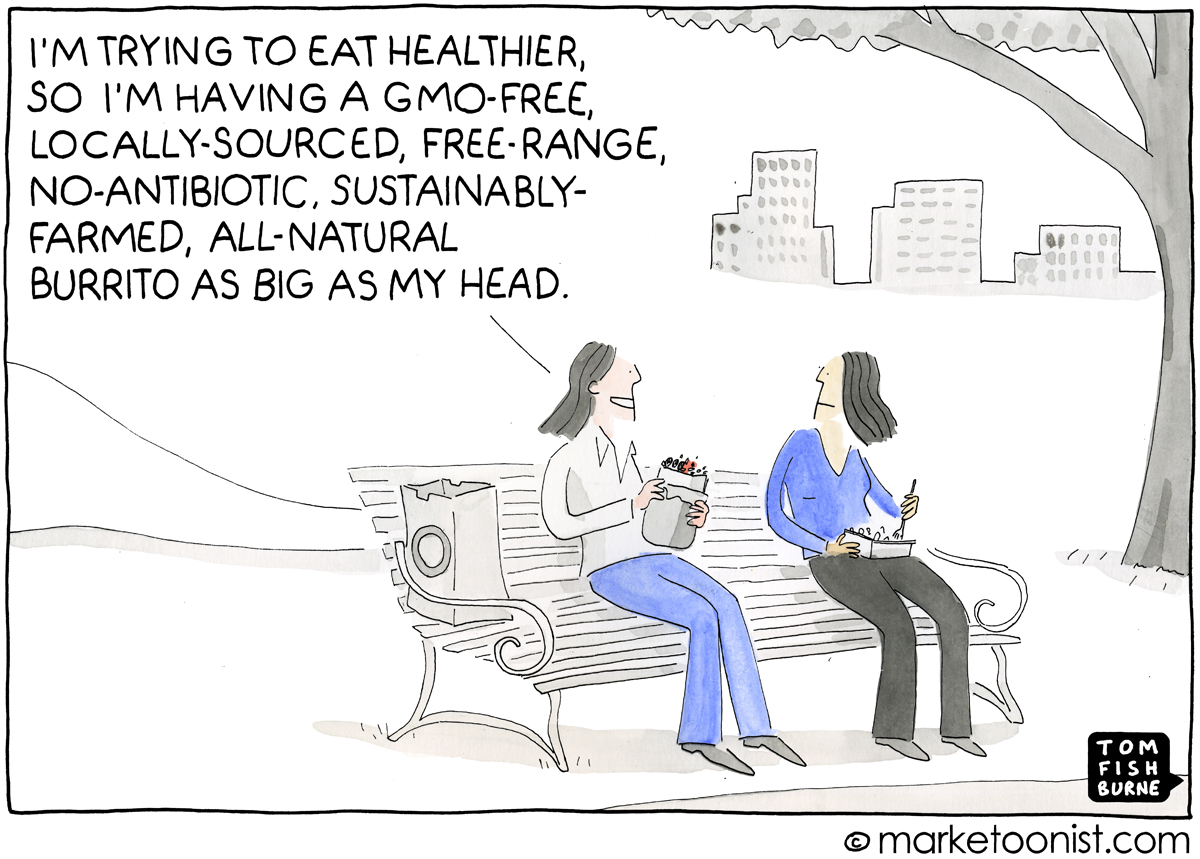
“The Art of Greenwashing” (July 2007)
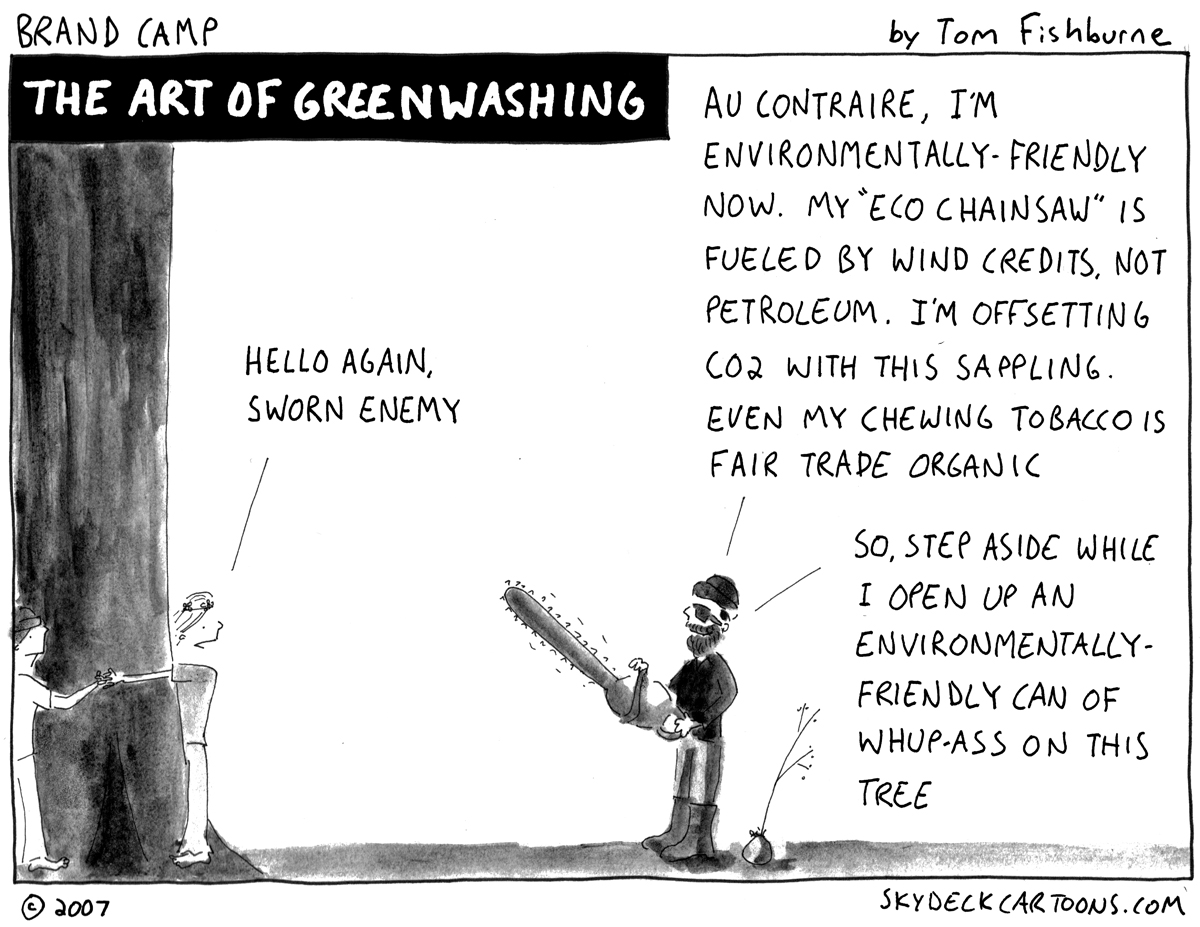
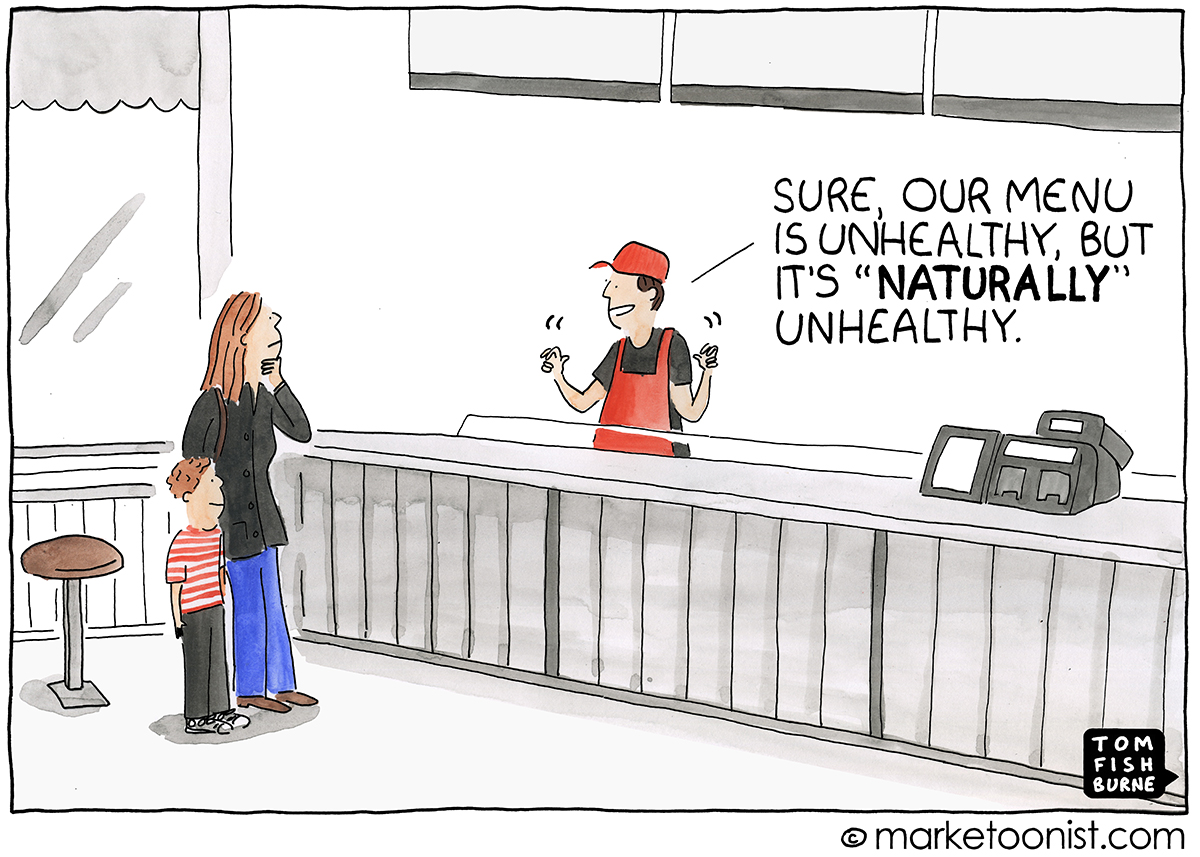
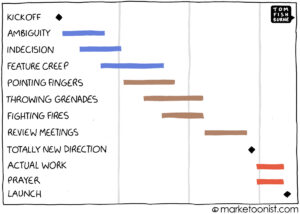
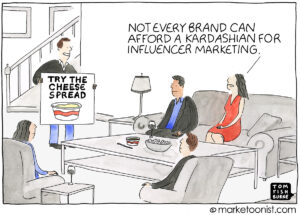
Leave a Reply